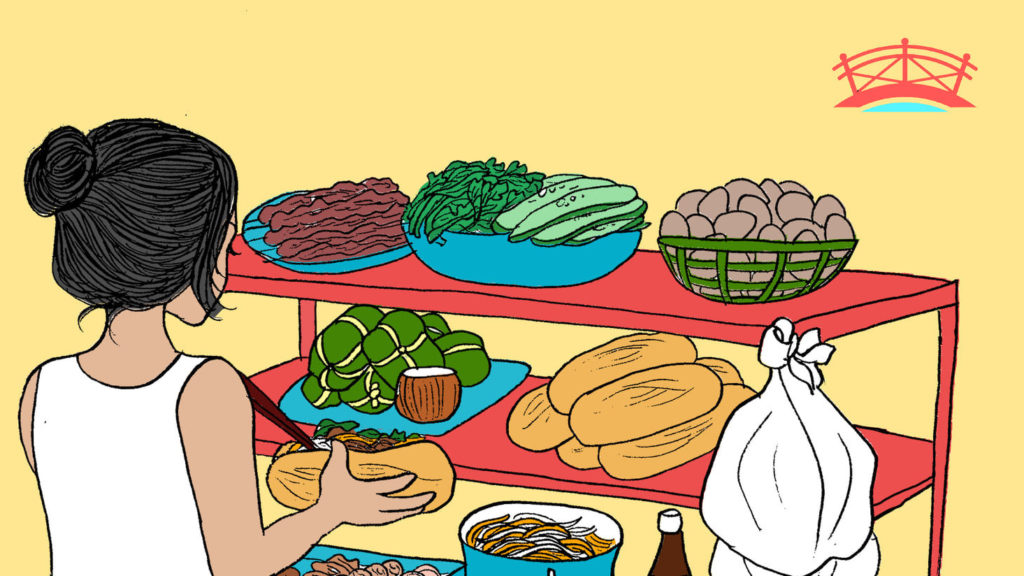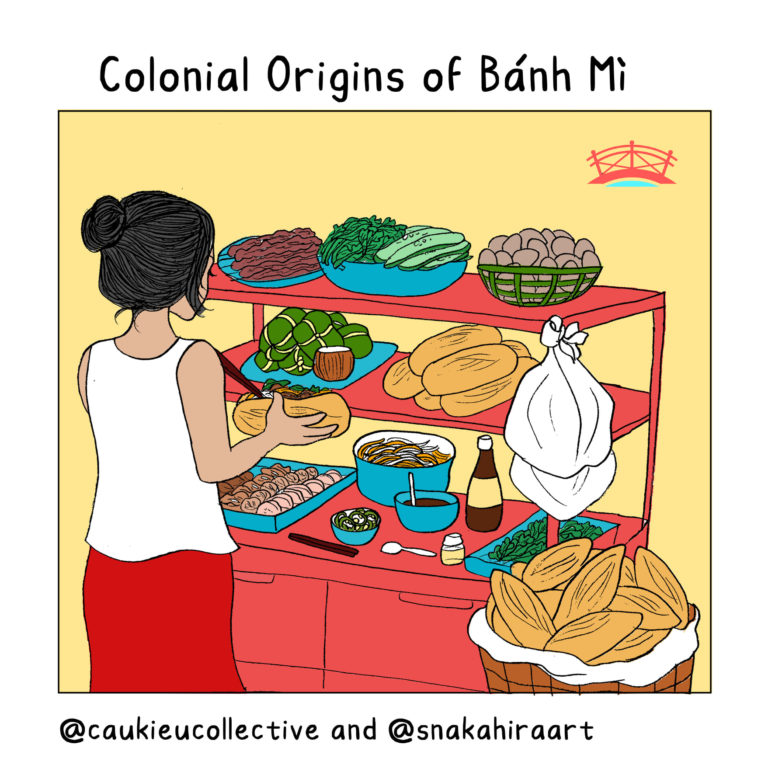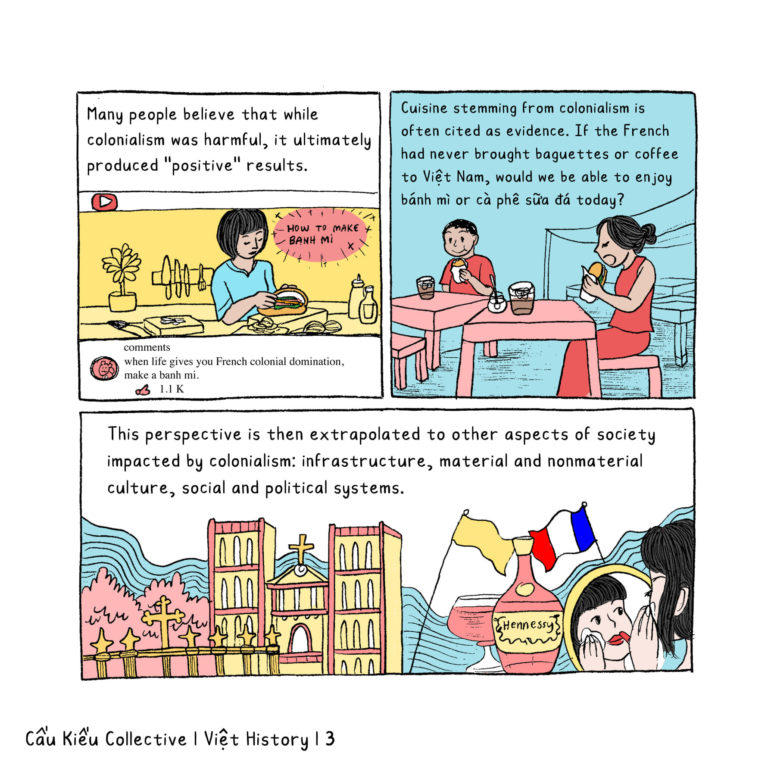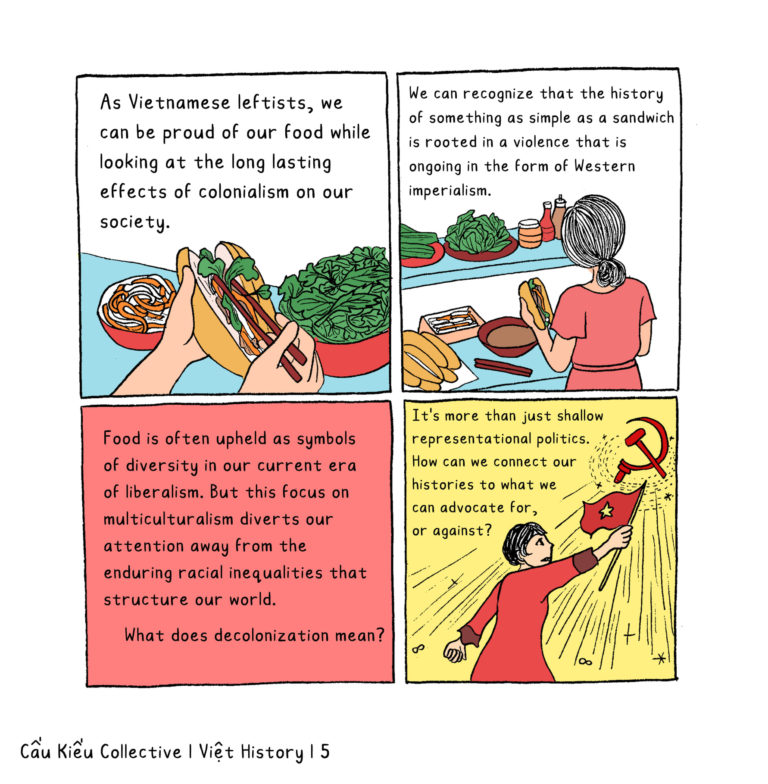A Beloved Dish
Bánh mì is one of Việt Nam’s most recognizable dishes. It can be considered a cultural commodity symbol.
For instance, nationwide voters selected bánh mì as the theme for Việt Nam’s national costume at Miss Universe 2018.
Although bánh mì is enjoyed today as the preeminent Vietnamese sandwich, its history is tied directly to French colonialism.
Colonial History
Around the start of French colonialism in the mid to late 1800s, the baguette was introduced as a staple food.
Like other French-imported goods, baguettes were considered a luxury. However, they became accessible for everyday consumption with the adaptation of using rice flour rather than expensive imported wheat flour.
Over time, people added fillings such as meats/sausages (thịt/chả) and pickles (đồ chua). Due to its convenience and eventual low production cost, bánh mì in the 1900s was primarily a worker’s meal.
However, more expensive versions of bánh mì with French-style meats and pâté were still sold in shops and could be considered a status symbol.
Combatting Myths about Colonialism
Many people believe that while colonialism was harmful, it ultimately produced “positive” results.
Cuisine stemming from colonialism is often cited as evidence. If the French had never brought baguettes or coffee to Việt Nam, would we be able to enjoy bánh mì or cà phê sữa đá today?
This perspective is then extrapolated to other aspects of society impacted by colonialism: infrastructure, material and nonmaterial culture, social and political systems.
We should first remember the human costs of any system built on capitalism. The colonialist French economy which provided those goods could not function without the subjugation of the Vietnamese people.
Measuring the impacts of colonialism as “negative/positive” is inherently a colonizer point of view, as it upholds a Western concept of a nation’s developmental success. This assumes that colonized countries could not have produced comparable results without the influence of colonialism.
Thinking Beyond Colonial History
As Vietnamese leftists, we can be proud of our food while looking at the long lasting effects of colonialism on our society. We can recognize that the history of something a simple as a sandwich is rooted in violence that is ongoing in the form of Western imperialism.
Food is often upheld as symbols of diversity in our current era of liberalism. But this focus on multiculturalism diverts our attention away from the enduring racial inequalities that structure our world.
What does decolonization mean?
It’s more than just shallow representational politics. How can we reconnect our histories to what we advocate for or against?






